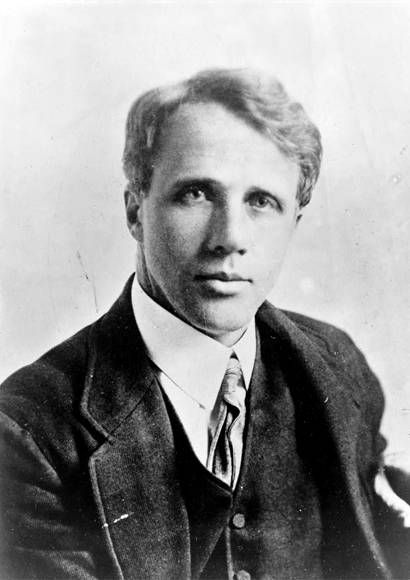Introduction
Here is your guide for research on poetry at the Arthur C. Banks Library. Notice the tabs along the right side of the screen; select the one that best matches your informational need.

Robert Frost, American Poet
What is National Poetry Month?
National Poetry Month is the largest literary celebration in the world, with tens of millions of readers, students, K–12 teachers, librarians, booksellers, literary events curators, publishers, bloggers, and—of course—poets marking poetry’s important place in our culture and our lives every April.
Who started it?
Inspired by the successful celebrations of Black History Month (February) and Women's History Month (March), the Academy of American Poets established National Poetry Month in 1996. Along the way the organization enlisted a variety of government agencies and officials, educational leaders, publishers, sponsors, poets, and arts organizations to help. National Poetry Month is a registered trademark of the Academy of American Poets.
Why was April chosen for National Poetry Month?
In coordination with poets, booksellers, librarians, and teachers, the Academy of American Poets chose a month when poetry could be celebrated with the highest level of participation. April seemed the best time within the year to turn attention toward the art of poetry, in an ultimate effort to encourage poetry readership year-round.
What are the goals of National Poetry Month?
The goals of National Poetry Month are to:
- highlight the extraordinary legacy and ongoing achievement of American poets
- encourage the reading of poems
- assist teachers in bringing poetry into their classrooms
- increase the attention paid to poetry by national and local media
- encourage increased publication and distribution of poetry books, and
- encourage support for poets and poetry.
Shouldn't we celebrate poetry all year-round, not just in April?
By all means, yes! The Academy of American Poets encourages the year-round, lifelong reading of poetry. National Poetry Month is just one of the many programs of the Academy of American Poets. To keep the celebration going, consider becoming a member, which entitles you to special benefits throughout the year. You can also sign up for Poem-a-Day to receive free daily poems by email all year long.
How does the Academy of American Poets celebrate National Poetry Month?
We celebrate National Poetry Month with a variety of programs in April.
Do organizations need permission to participate?
No, just as you don't need anyone's permission to celebrate Black History Month or Women's History Month. The Academy of American Poets encourages you to use the official National Poetry Month logo, which can be downloaded here.
What can I do to celebrate NPM?
There are thousands of ways to celebrate. The Academy of American Poets has developed a list of 30 to get you started—one for every day in April.
Taken from the Academy of American Poets website at https://nationaltoday.com/national-poetry-month/#faqs
Names of Poets
Here is a partial list of poets. You can find a more complete list at Famous Poets and Poems. http://famouspoetsandpoems.com/poets.html
You can also locate information on the poets by using one of library's biographical, literature or e-book databases. To access the databases off campus, please enter your Banner ID and password.
- Maya Angelou
- Imamu Amiri Baraka
- Elizabeth Bishop
- William Blake
- Jorge Luis Borges
- Gwendolyn Brooks
- Elizabeth Barrett Browning
- Robert Browning
- Jorge Luis Borges
- Lord Byron
- Ernesto Cardenal
- Luis Cernuda
- Samuel Coleridge
- Countee Cullen
- Emily Dickinson
- Rita Dove
- T.S. Eliot
- Robert Frost
- Khalil Gibran
- Allen Ginsberg
- Nikki Giovanni
- Thomas Hardy
- Langston Hughes
- John Keats
- Henry Wadsworth Longfellow
- Federico Garcia Lorca
- David Herbert (D.H) Lawrence
- Phillip Levine
- Audre Lorde
- Jorge Manrique
- Claude McKay
- Edna St. Vincent Millay
- Pablo Neruda
- Octavio Paz
- Sylvia Plath
- Pedro Salinas
- Sonia Sanchez
- Wallace Stevens
- Phillis Wheatley
- Walt Whitman
- William Butler Yeats
- Daisy Zamora